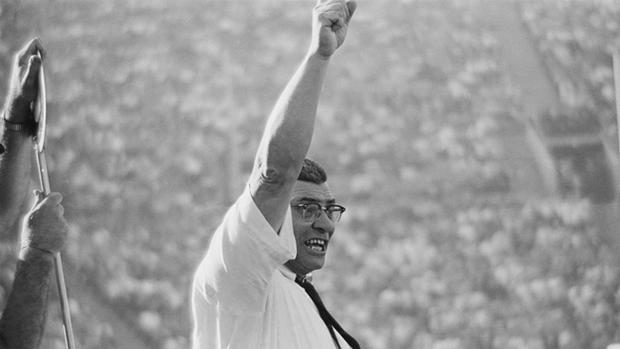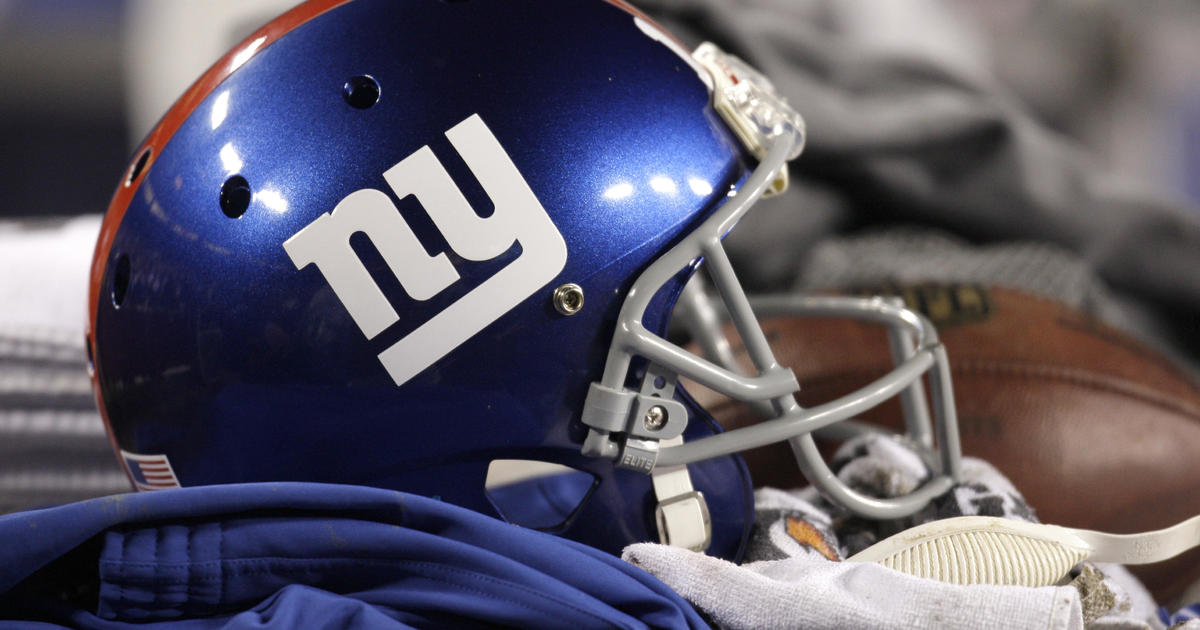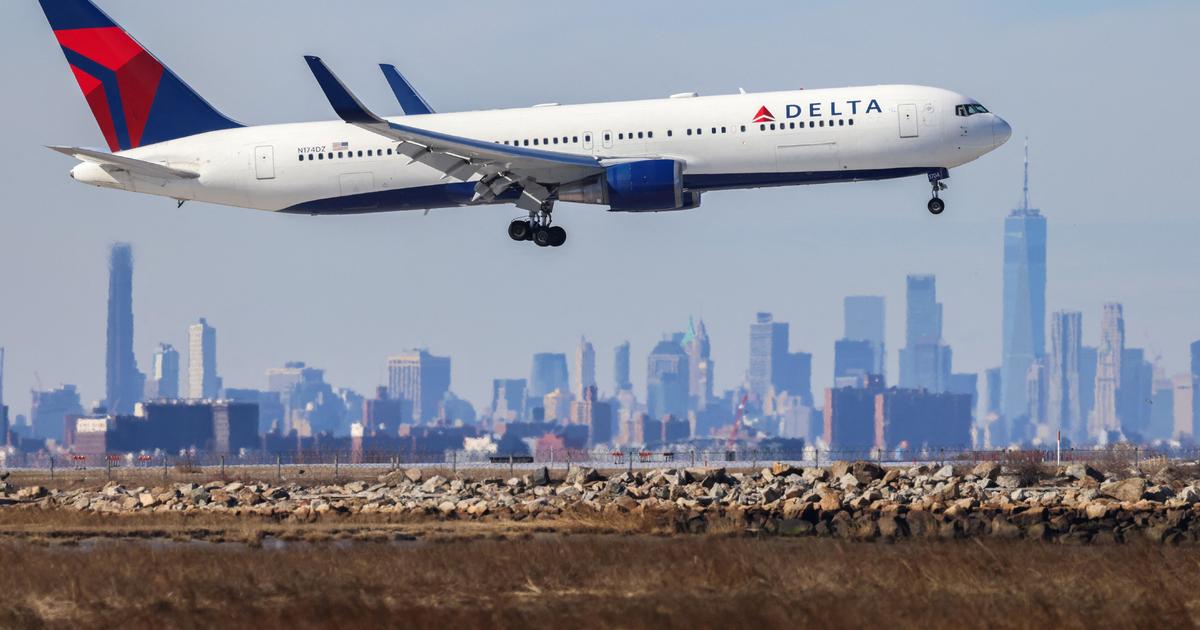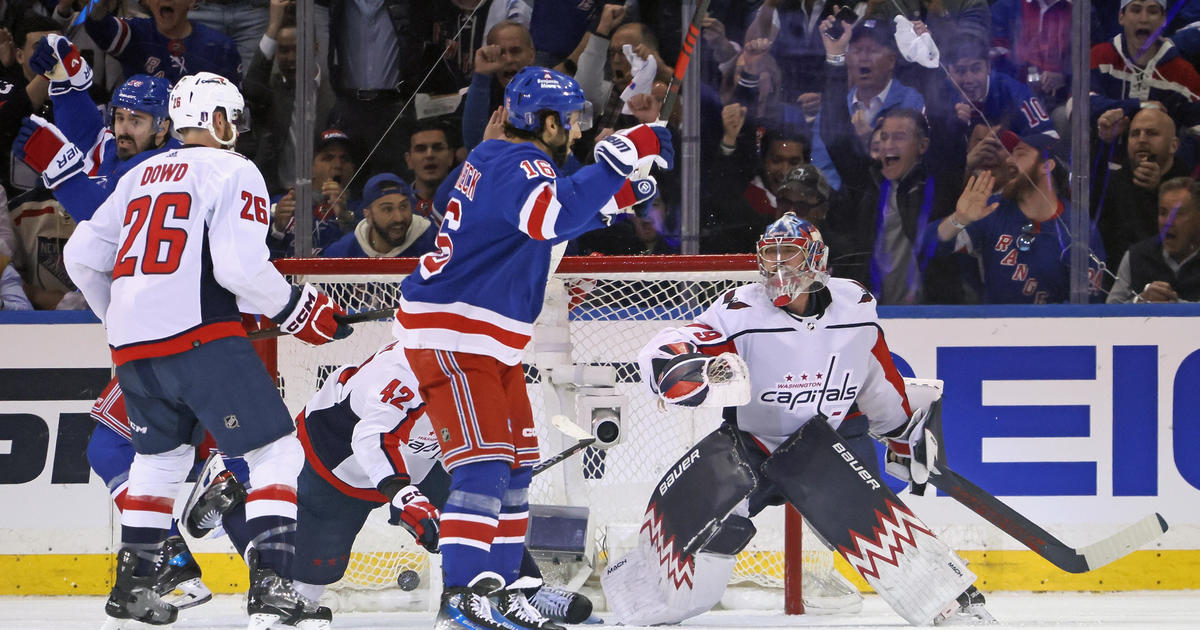Silverman: Vince Lombardi Felt Intense Heat In Super Bowl I
By Steve Silverman
» More Columns
There was nothing but pressure on the Green Bay Packers 50 years ago when they took the field at the Los Angeles Coliseum for the AFL-NFL World Championship Game. The players were largely shielded by Vince Lombardi from it, as the coach absorbed all the well wishes and demands from nearly every big name associated with the National Football League. But the Packers knew something was up.
Lombardi was always demanding because that was both his nature and his coaching style, and he didn't like getting advice from the outside world. He could avoid that during the regular season and even in the NFL title-game victory over the Dallas Cowboys.
But this was too big, and Lombardi heard from everyone, including commissioner Pete Rozelle, New York Giants owner Wellington Mara and Chicago Bears owner George Halas. They all implored him to beat the American Football League champion Kansas City Chiefs and uphold the honor of the NFL.
In many ways, the assignment was not difficult because the Packers were a deeper, better and more experienced team than the Chiefs. Under Lombardi, the Packers made it a habit of winning the most important games. But this time the Packers were playing for more than themselves, their coaches and their fans. They had to win or the NFL's embarrassment would be all over the Packers and Lombardi.
The brilliant coach did a superb job of preparing his team to play a strong game, but the Packers would quickly find out that the Chiefs were no pushovers. They represented their league quite well, particularly in the first half when they went to the locker room trailing by just a 14-10 margin.
They had been hit hard by the Packers when Bart Starr threw the opening touchdown pass of the game to Max McGee, but the Chiefs responded when Len Dawson found Curtis McClinton in the end zone for a 7-yard TD pass. That showed the Chiefs could take a blow from the Packers and respond with one of their own.
"That touchdown was big for us," Dawson told me in an interview several years ago. "Yes, it tied the score in the second quarter, but it showed us that we were good enough to play with them. It showed them that they were going to have a fight on their hands. It was an uplifting moment."
If the Packers thought the game would be easy, they quickly put that thought out of their minds. They just went back to doing what they did best -- executing the fundamentals of the game.
"There was never any sense of panic because they scored," Packers guard Jerry Kramer explained to me. "We knew that they had good players and a good team. One touchdown was not going to beat us, and we were simply going to play the way we had all season, and the way we had in so many seasons."
In other words, the Packers simply blocked, tackled and executed better than the Chiefs from that point forward.
While Kansas City kept it close for 30 minutes, the relentless pressure applied by the Packers' defense was simply too much for the Chiefs to handle. The Packers outscored the Chiefs 21-0 in the final 30 minutes and won the game by a comfortable 35-10 margin.
Lombardi was visibly relieved at the end of the afternoon, and he paid the Chiefs a backhanded compliment when he spoke with the media. He called Kansas City "a fine football team," but said there were several NFL teams that were better.
However, he knew his team had been in a game and the Chiefs had represented their league quite well.
Lamar Hunt was the owner of the Chiefs and the founder of the AFL. He had been denied an opportunity to own an NFL franchise throughout the 1950s, and he decided to start his own league when the NFL told him the league was not interested in expanding.
He found seven other men who wanted franchises, and those eight owners made up what was known as "The Foolish Club."
Hunt had finally achieved what he wanted when the leagues agreed to merge in June 1966, but seeing his team competing with the Green Bay Packers was a high for him.
"We wanted to win that game, and we wanted it badly," Hunt told me when I was researching a story on the history of the AFL years ago. "But seeing our team and our league competing with the Packers on excellent terms meant the world to me.
"I knew our day would come," added Hunt, who died in 2006.
The AFL's great day would come two years later when Joe Namath and the Jets beat the heavily favored Baltimore Colts in Super Bowl III. A year later, Hunt's Chiefs drove home the AFL's equality when they pounded a strong Minnesota Vikings team 23-7 in Super Bowl IV.
But the first Super Bowl was about Starr, Lombardi and the dominant Packers. Starr was one of the few who knew how much pressure his legendary coach was under.
While his teammates were confident they would steamroll the Chiefs, Starr knew of the messages Lombardi was getting and that men such as Halas had implored him to fight for the honor of the NFL.
"I'm not saying it drained him, but there was quite a bit of pressure there," Starr explained. "He felt it, and we responded as we had so many times."
Lombardi and the Packers would win the title again the following year with a 33-14 victory over the Oakland Raiders in Super Bowl II, but it was the first AFL-NFL World Championship Game that set the tone for the biggest event in North American sports and helped make the NFL the biggest and baddest league on the sports landscape.
Follow Steve on Twitter at @Profootballboy




